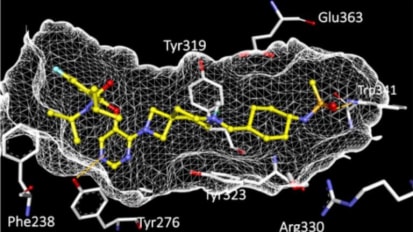Search Videos and More
 News
News
Dana-Farber Cancer Institute Researchers Join Global Cancer Grand Challenges Team Taking on Solid Tumors in Children
Dana-Farber Cancer Institute's Scott Armstrong, MD, PhD, Benjamin Ebert, MD, PhD, Eric Fischer, PhD, Cigall Kadoch, PhD, and Kimberly Stegmaier, MD, are part of a global, interdisciplinary team of researchers, called Team PROTECT, that has been selected to receive a Cancer Grand Challenges award. The award, of up to $25 million over five years, will be used to tackle solid tumors in children. News
News
Dana-Farber/Boston Children's Again Ranked Among the Best Pediatric Cancer Programs in the Nation
U.S. News & World Report has named Dana-Farber/Boston Children's Cancer and Blood Disorders Center the #2 pediatric program in the nation in its 2023-24 Best Children's Hospitals report. News
News
Three of the World’s Top Research Institutions Join Forces to Drive Progress Against Pediatric Cancer
Large-scale collaboration will leverage each institution’s expertise and infrastructure to advance understanding of the biological basis of pediatric cancers, identify new vulnerabilities of these diseases and accelerate cures globally. News
News
Study Shows That Genomic Tumor Profiling of Pediatric Tumors Can Enhance Clinical Care
Results of a study of molecular tumor profiling in young patients revealed a high rate of genetic alterations with potential for impacting clinical care, including clarifying diagnoses and treatment with matched, precision cancer drugs. News
News
Dana-Farber/Boston Children's Again Named Top Pediatric Cancer Program
U.S. News & World Report has named Dana-Farber/Boston Children's Cancer and Blood Disorders Center #1 in the nation in its 2022-23 Best Children's Hospitals report. Dana-Farber/Boston Children's has been recognized as one of the top three pediatric cancer centers in the country each year since the ranking's inception, earning more #1 rankings than any other program. News
News
Race, Ethnicity, and Poverty Linked to Worse Outcomes in Children Treated for High-Risk Neuroblastoma
Children with high-risk neuroblastoma had worse outcomes if they were from certain racial/ethnic groups or were on public rather than private insurance, despite being treated in clinical trials with standardized protocols, according to a study led by investigators from Dana-Farber/Boston Children’s Cancer and Blood Disorders Center. News
News
Researchers Identify Promising Drug Target in Pediatric Neuroblastoma
Dana-Farber scientists have now teased apart the relationship between the proteins EP300 and CBP — to discover that EP300 is critical for a high-risk form of pediatric neuroblastoma. News
News
Dana-Farber/Boston Children’s Exceeds Expected Outcomes for Stem Cell Transplants
Dana-Farber/Boston Children’s Cancer and Blood Disorders Center was ranked as one of 15 transplant centers in the country that performed above the expected survival rate, according to a new report. News
News
Genetic Testing, Precision Therapy Spell Success for Young Patient with Rare Syndrome
In a recent case study in the New England Journal of Medicine, researchers at Dana-Farber/Boston Children’s Cancer and Blood Disorders Center describe how a drug targeting the genetic roots of the patient’s condition — an agent based on Nobel Prize-winning research by a Dana-Farber scientist — has caused new tumors in the patient to shrivel, her high blood pressure and headaches to ease, and her polycythemia to relent. News
News
FDA Approval Offers Hope For Prevention of Acute Graft-Versus-Host Disease
Based on a clinical trial led by Leslie S. Kean, MD, PhD, of Dana-Farber/Boston Children’s Cancer and Blood Disorders Center, the FDA has approved abatacept for the prevention of GVHD. This approval will allow many more patients to safely and effectively undergo stem cell transplants, particularly patients of diverse ethnicities who have more difficulty finding appropriately matched donors. News
News
Researchers Solve Mystery of Retinoic Acid’s Potency Against High-Risk Neuroblastoma
For decades, retinoic acid has been a key part of the arsenal against the childhood cancer neuroblastoma. For just as long, scientists have wondered exactly how it works. News
News
Targeted Agent Shows Early Promise Against a Dangerous Infant Leukemia
Leukemias involving reshuffling or rearrangement of the mixed lineage leukemia (MLL) gene, known as MLL-rearranged or MLL-r leukemias, account for 70 to 80 percent of acute leukemias in infants under one year old. In these blood cancers, a subset of acute myeloid and acute lymphoid leukemias (AML and ALL), the MLL gene breaks and reattaches to the wrong section of the chromosome.